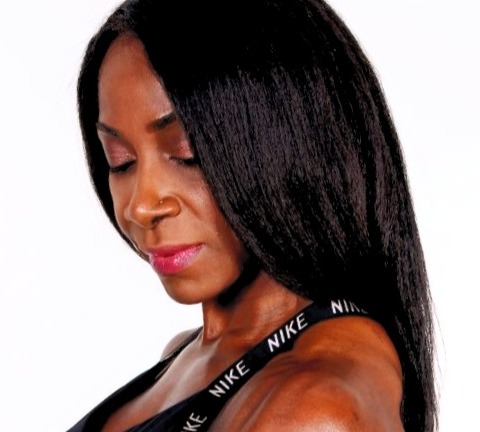Fat Loss vs. Weight Loss – What’s the Difference?
- Pat Greaves

- Jan 10, 2022
- 3 min read
I often hear women say, “I’m working out and watching what I eat, but I still weigh the same!” It can be frustrating when you are accustomed to measuring your progress by the bathroom scale.
One of the first things I tell a new client (and often remind my veteran clients) is to not pay any attention to the scale. Wait…what??? Yes, throw out the scale or put it in the basement – move it somewhere far so you won’t be tempted to weigh yourself.
Here’s the reason - weight fluctuates regularly, even within a day. Your total body weight consists of muscle, bones, organs, blood, water, body fat, and waste. We tend to weigh less in the morning but once we eat and drink throughout the day, our weight can easily increase by 1-4 lbs. That doesn’t mean the fat percentage in your body has increased in a day. To do that takes time unless you are wolfing down 3-4 greasy cheeseburgers for lunch. Weight increase can also be due to water retention from PMS or eating certain foods that are high in sodium (salt attracts water).
The goal should be to reduce your body fat percentage to a healthy level. If you are exercising consistently AND eating healthier (reducing highly processed foods, decreasing sugar and salt in your diet), then you will begin to shed the fat. You may be thinking, “well, won’t my weight decrease?” Not necessarily. Muscle building from strength training may result in an undramatic weight loss due to muscle’s density compared to fat. And no, muscle does NOT weigh more than fat! That would be like saying a pound of rocks weigh more than a pound of feathers. However, muscle takes up less SPACE than fat, pound for pound. Which means as you build muscle, your weight can remain approximately the same, but you are losing inches and THAT is a much better indication of your progress.
This is what I explain to my clients. The scale is not a good measurement of fat loss. Instead, use the measuring tape, observe how your clothes fit, how you move and feel and how you look in the mirror. There’s a big difference between weighing 150 lbs with a fat percentage of 25% compared to 150 lbs with a fat percentage of 40%.
So what’s more important? Losing the weight or shedding the fat? Focus on fat loss which can reduce your risk of heart disease, stroke and certain cancers.
Here are some tips to target fat loss instead of weight loss through exercise and nutrition:
Include strength-training with your cardio in your workout routine and make a schedule to exercise at least 3 times a week.
Reduce your daily caloric intake. You can decrease your calories by 500 per day just by substituting processed snacks/foods with fruits and veggies.
Increase your protein intake while reducing calories. By consuming more protein, you will preserve precious muscle mass while decreasing unwanted fat.
Will this happen overnight? No, but it’s a more effective way of changing your body composition of fat/muscle. Shedding overall weight quickly through extreme diets often results in muscle wasting or simply losing water weight. And fast weight-loss methods almost always result in regaining the weight (and then some!).
If you are now starting out on a workout program, stay consistent with your exercise and nutrition and over time, you will start seeing measurable changes that the scale won’t initially show you. Be patient and trust the process! Even more important than the scale, is how you feel in your skin!








Great read! Thank you for sharing this!